Christof Lehmann (nsnbc) : Venezuelan Attorney General Luisa Ortega Diaz, in a leaked letter to Elias Jaua, the head of the Presidential Commission for the Constituent Assembly, warned that the proposed approach to introducing a new constitution would aggravate the crisis in the country rather than promote national reconciliation. Diaz also warned against the corporative approach without direct representation. The PSUV’s push for “a new constitution” is consistent with what critics describe as an attempted coup under left cover, that has been in the making since January when the administration adopted a sweeping “security initiative”.
Ortega’s letter to Jaua was leaked on Friday. In her letter the Attorney General stressed that “To resolve the unprecedented crisis the country is undergoing, it is neither necessary, pertinent, or advisable to carry out a transformation of the state in terms of a new constitution”. Ortega also criticized the sectorial and corporative approach of the Commission for the Constituent Assembly (ANC), highlighting the fact that it amounts to indirect representation.
The presidential decree issued by embattled President Nicolas Maduro stipulates that the ANC shall be comprised of 500 delegates. Half of these delegates will be elected among regional districts. The other half will be “chosen by sectorial constituencies”, including workers, students, pensioners, indigenous peoples, the disabled, as well as national business confederations. The election of half of the delegates from constituent assemblies is particularly problematic because the ruling socialist party (PSUV), in January 2017, introduced a “security initiative” that has endowed the party with what many described as semi-fascist powers – with party functionaries controlling everything from intelligence services to prisons. It is also worth noting that all delegates will be elected directly via secret ballots.
Constituent parties of the Roundtable of Democratic Unity (MUD) that hold a majority in the suspended National Assembly have not yet responded publicly to Ortega’s letter. However, Luis Almagro, the General Secretary of the Organization of American States used his Twitter account to state “We support the juridical position of Venezuela Attorney General Luisa Ortega Diaz in defense of what’s right”.
On Monday, during a press conference, Elias Jaua responded to Ortega’s letter on behalf of the Presidential Commission, welcoming her letter as “one more opinion” and adding “We have received the opinion of Doctor Luisa Ortega Diaz as one more political opinion of the many that we have received in this whole exchange with sectors who support the initiative [the ANC] and with sectors that don’t support it.”
Saying Ortega was “entitled to her opinion” Jaua said “the only body authorized to interpret the national constitution is the constitutional tribunal of the Supreme Court.” (Which is heavily controlled by the PSUV). Jaua also implied that Doctor Luisa Ortega Diaz’s letter to him may have been leaked to the press by the office of the Attorney General because it does not bear the official stamp of receipt by the Presidential Commission.
Ortega has previously voiced her concerns about the PSUV administration’s violation of the Constitution. In March 2017 she spoke out against a Supreme Court ruling that temporarily authorized the judiciary to carry out the functions of the suspended legislative branch of government.
In late March 2017 the Supreme Court of Justice (TSJ) released a statement saying it “temporarily will assume the functions of the National Assembly until the body ceases to be in contempt of court”. On July 28, 2016 the Supreme Court claimed the National Assembly is in violation of a Supreme Court order because legislators of the Roundtable of Democratic Unity (MUD) coalition, which holds a majority in the National Assembly, swore in three legislators from Amazonas State.
The National Assembly chose to swear in the three legislators despite a highly controversial court ruling from December 2015 in which the TSJ barred them from taking or holding public office. The three legislators are currently under investigation into alleged vote-buying during their election while a PDVSA legislator accused of the same kind of scheme wasn’t sworn in. It is noteworthy that the MUD won a decisive election victory and that the case of the four legislators could not have tipped the balance of power in the Assembly.
Controversially, the Supreme Court of Justice ruled that the legislative branch of government was “incapacitated” and thus could not carry out its constitutional obligations – thus “enabling” Maduro and the Presidency to rule by decree. The term “enabling act” comes to mind. The judicial branch also ruled that there was no impediment to the economic measures decreed by Maduro to be implemented.
The Court and the Presidency claim authorization based on Article 336.7 of the PDSV implemented Constitution which allows the TSJ to take “corrective measures in the case of unconstitutional parliamentary default”. Based on this same article, the Court “assumed the functions of the legislative branch”. The National Assembly – elected by popular vote – has in other words been “removed from power” by a “Tribunal of Judges” that allegedly will guarantee that parliamentary functions are exercised directly by this tribunal or by another body at its disposition, in order to maintain the rule of law” – the tribunal ruled.
The parliamentary majority Roundtable of Democratic Unity (MUD) denounced the ruling as arbitrary. National Assembly President Julio Borges for the Justice First party, outside the Assembly, tore up a copy of the TSJ decision. Borge stressed that the legislative branch refuses to recognize the ruling. Borge blasted the Supreme Court’s ruling to assume the powers and functions of parliament as “trash amounting to a cup”. Scuffles broke out when National Guard units blocked legislators who attempted to enter the National Assembly.
Attorney General Luisa Ortega Diaz warned that after studying the Court’s ruling, she had identified several severe “violations of the constitutional order in the Supreme Court’s controversial ruling – a ruling in which a tribunal of judges suspended the legislative branch to “temporarily” transfer legislative powers to the tribunal itself. Attorney General Diaz stressed:
“I consider it an unavoidable historical duty – not only in my capacity as attorney general … but also as a citizen of this country – to refer to the recent decisions signed … by the Constitutional Chamber of the Supreme Court of Justice. These judgements show several violations of the constitutional order and ignorance of the model of state enshrined in the constitution of the republic. … It is my obligation to express to the country my serious concern. … On behalf of nearly 10,000 civil servants … we call for reflection and that democratic paths are taken, and … an environment of respect and rescue of plurality, for democratic debate, and respect for [political] differences; to achieve institutional paths that guarantee peace and overcome the obstacles that currently prevent us from providing the quality of life that our population requires.”
Neither the Supreme Court, President Maduro or the Presidency responded immediately to the Attorney General’s comments and concerns. However, Venezuela’s Supreme Court partially annulled some of the most controversial features of what critics and independent analysts alike describe as a de-facto constitutional coup by the PSUV administration of President Nicolas Maduro. The Court retracted its decision to assume the powers of the National Assembly and to question the immunity of elected legislators. However, the de-facto coup is far deeper than that and the country is likely to plunge into a dangerous crisis.
On its website the Supreme Court announced that the article referring to parliamentary immunity in ruling number 157 had been struck down. The Supreme Court also noted that “in relation to point 4.4 of the ruling [no. 156], with respect to the Constitutional Tribunal guaranteeing that parliamentary responsibilities will be exercised directly by this body or by another at its disposition in defense of the rule of law; said content is struck down”. The “calming words issued by the Supreme Court set aside, it is at this time not known whether or not lawmakers will be granted access to the National Assembly (parliament) again. Earlier this week National Guard units prevented legislators from entering the building – at gunpoint.
The De-Facto PSUV Coup Continues and is Deeper and More Systemic than the failed Attempt to Replace the Legislative Branch by a Tribunal of Judges
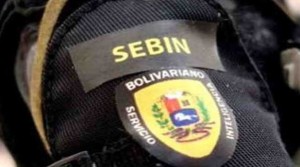 In January 2017 the PDVSA administration announced the implementation of a new “anti-crime strategy”. While containing social elements aimed at preventing violent crime, the plan known as the Carabobo 2021 plan includes increased cooperation between police and the National Guard, Venezuela’s controversial security and intelligence service SEBIN and the United Venezuelan Socialist Party’s Bolivar-Chávez Battle Units (UBCh).
In January 2017 the PDVSA administration announced the implementation of a new “anti-crime strategy”. While containing social elements aimed at preventing violent crime, the plan known as the Carabobo 2021 plan includes increased cooperation between police and the National Guard, Venezuela’s controversial security and intelligence service SEBIN and the United Venezuelan Socialist Party’s Bolivar-Chávez Battle Units (UBCh).
Carabobo 2021 plan consists of six initiatives aimed at combating crime. Venezuela is one of Latin America’s and the world’s countries with extremely high rates in violent crime. On the level of crime prevention, the plan involves initiatives aimed at supporting community sports as well as cultural workshops organized by the Movement for Peace and Life. The movement is a government-funded program aimed at preventing crime, and especially violent crime.
More controversial is that the Carabobo 2021 plan includes re-launching the so-called “Safe Homeland Plan”. The plan aims at reinforcing and increasing local police patrols, which, considering the crime rates in the country, is welcome by most Venezuelans.
Even more controversial is that local police patrols will be reinforced by National Guard personnel which will also be used to “strengthen security in highly trafficked places, parks, avenues and plazas”. Critics speak about a militarization of police and point out that National Guard personnel does not have the education required to conduct law-enforcement that is consistent with the civil liberties and rights of the citizen. Even more controversial is the so-called Peace Quadrants Initiative. The initiative will be tasked with
“Supervising security efforts in local communities by promoting coordination between police and National Guard personnel, the National Bolivarian Intelligence Service (SEBIN), the Francisco Miranda Front, the United Venezuelan Socialist Party’s Bolivar-Chávez Battle Units (UBCh), and community leaders”.
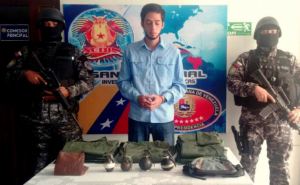
City Councilman Jose Vincente Garcia paraded before cameras with alleged evidence by SEBIN, using media to declare him guilty in the eyes of the public before a trial. (archives) Photo courtesy Twitter @VielmaEsTachira
Needless to say that this initiative implies that the coordination of the cooperation between law enforcement, National Guard, as well as Venezuela’s highly questionable intelligence service SEBIN will be heavily controlled by the embattled but ruling United Venezuelan Socialist party (PSUV) with participation of “Party Battle Units” involved in law enforcement.
Moreover, the Carabobo 2021 plan includes the creation of the Popular Intelligence System – by critics denounced as an initiative aimed at building a network of “snitches”. However, SEBIN Director Gustavo Gonzalo Lopez assures that the plan merely will serve to “alert about threats in the political, economic, social, and cultural areas”. No details about the Stasi-like / Gestapo-like plan were disclosed.
It is worth noting that SEBIN has been involved in numerous highly-controversial arrests of citizens who are members of opposition parties. Many of those who were “busted” by SEBIN, including prominent opposition members claimed SEBIN had planted weapons, explosives or drugs when they were arrested. Moreover, Maduro announced that his administration would re-vamp the already highly-controversial anti-crime operation, known as Operation Liberation of the People (OLP), which will be re-branded under the euphemistic name Operation Humanistic Liberation of the People (OLHP).
Finally, the Carabobo 2021 plan also involves the establishment of new “community institutions” (jails) under the name “houses of justice” which will be created as “an alternative to the penal system” for cases involving minor crimes as one of the not at lest semi-totalitarian and positive elements. Maduro explained “The houses of justice are houses for conflict resolution, for early justice in order to combat impunity and uphold law and order within communities”. However, some critics note that the initiative also circumvents law and the prison system and puts it into the hands of PSUV-friendly vigilantes.
These “houses of justice” will “house” those sentenced to eight years or less for offenses such as robberies, assault, theft, among others. It must be noted that staff will be provided by representatives of the Ministry of the Interior, Justice, and Peace, the United Venezuelan Socialist Party’s Bolivar-Chávez Battle Units (UBCh), the National Bolivarian Militia, the People’s Guards, among others. In other words “Party Prisons”. The Carabobo 2021 plan and associated “initiatives” will be headed and supervised by the recently appointed-appointed Vice-President Tareck El Aissami.
With the judiciary having retracted “part” of the most controversial recent rulings, such as the attempt to replace the National Assembly by a Tribunal with National Guard units preventing elected legislators from entering the National Assembly – at gunpoint – there may be an intermediate period of calm – as in keeping up appearances. With all of the other of the above described totalitarian party-rule initiatives left in place, however, the country is likely to descend deeper into chaos.
CH/L – nsnbc 23.05.2017
Source Article from https://nsnbc.me/2017/05/23/venezuelan-attorney-general-rejects-national-constituent-assembly-as-corporative-lacking-representation/
Related posts:
Views: 0
 RSS Feed
RSS Feed

















 May 23rd, 2017
May 23rd, 2017  Awake Goy
Awake Goy 










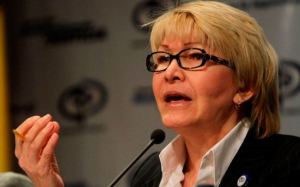
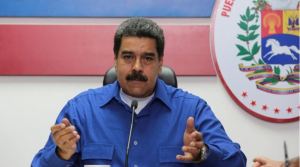
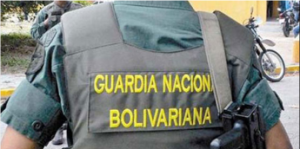
 Posted in
Posted in  Tags:
Tags: 
















